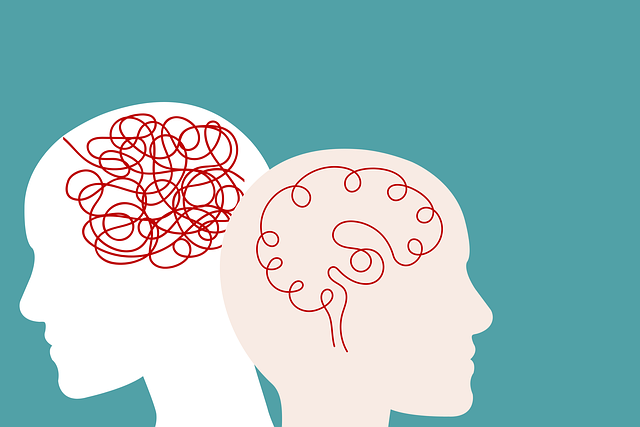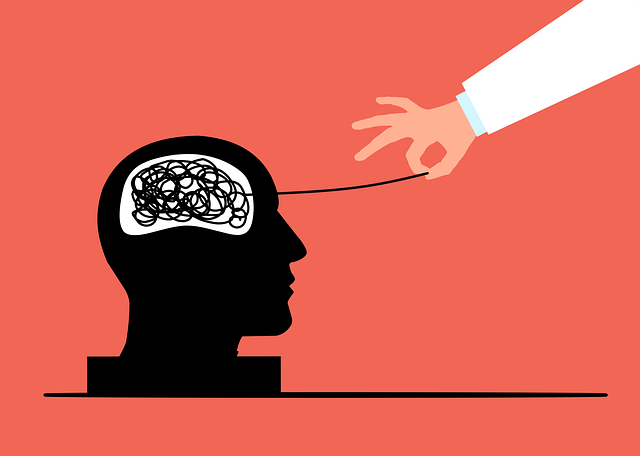Emotional intelligence (EI) is enhanced through Arvada Cognitive Behavioral Therapy (CBT), which helps individuals recognize and replace negative thought patterns with positive, realistic ones. CBT, combined with mindfulness meditation and personalized self-care routines, improves emotional regulation, fosters better relationships, and increases self-awareness—all key components of EI. Developing self-awareness through CBT techniques like journaling and reflection leads to improved overall well-being. Additionally, CBT promotes empathy, strengthening connections and interpersonal dynamics, especially in trauma support services.
Emotional intelligence (EQ) is a powerful tool for personal and professional growth, enabling individuals to understand, manage, and effectively respond to their own emotions and those of others. This article explores the profound impact of EQ on various aspects of life. We delve into the role of Arvada Cognitive Behavioral Therapy in enhancing emotional intelligence, providing practical strategies for developing self-awareness, and cultivating empathy as a means to connect with others on a deeper level.
- Understanding Emotional Intelligence and Its Impact
- The Role of Cognitive Behavioral Therapy in Enhancing EQ
- Practical Strategies for Developing Self-Awareness
- Cultivating Empathy: Connecting with Others on a Deeper Level
Understanding Emotional Intelligence and Its Impact

Emotional intelligence (EI) is a powerful concept that transcends mere emotional awareness. It involves recognizing and managing one’s own emotions, as well as understanding and empathizing with others’ feelings. This dynamic skill set isn’t just about feeling emotions; it’s about using them effectively to navigate relationships and challenges. In today’s fast-paced world, where stress and mental health issues are on the rise, cultivating emotional intelligence can be a game-changer. It empowers individuals to make sense of their emotions, fostering better self-care practices and confidence-boosting strategies.
For those seeking personal growth, Arvada Cognitive Behavioral Therapy (CBT) offers a structured approach to enhancing EI. CBT helps individuals identify negative thought patterns and replace them with healthier, more adaptive ones, which in turn can improve emotional regulation. Moreover, cultural competency training for healthcare providers is integral to understanding the diverse ways people express and cope with emotions, ensuring inclusive and effective support for all clients.
The Role of Cognitive Behavioral Therapy in Enhancing EQ

Cognitive Behavioral Therapy (Arvada CBT) plays a pivotal role in enhancing emotional intelligence (EQ). This therapeutic approach helps individuals identify and challenge negative thought patterns, replacing them with more positive and realistic ones. By focusing on the connection between thoughts, feelings, and behaviors, CBT empowers people to better understand their emotions, which is a core component of EQ. Through regular sessions with a trained therapist, individuals learn valuable coping strategies, improve self-awareness, and develop healthier relationships—all essential aspects for building emotional intelligence.
Moreover, integrating mindfulness meditation and cultivating a self-care routine can significantly augment the benefits of CBT. Regular practice of mindfulness helps to calm the mind, reduce stress, and enhance focus, thereby fostering better emotional regulation. Self-care routines, tailored to individual needs, promote mental health and well-being, enabling individuals to navigate life’s challenges with increased resilience. Combining these techniques with the structured approach of Arvada CBT creates a holistic framework for cultivating and enhancing emotional intelligence.
Practical Strategies for Developing Self-Awareness

Developing self-awareness is a cornerstone of emotional intelligence growth and Arvada Cognitive Behavioral Therapy (CBT) offers powerful tools to achieve this. Through CBT techniques, individuals can learn to observe their thoughts, feelings, and behaviors with greater clarity. This introspective practice allows for deeper understanding of personal triggers and patterns, enabling better management of emotions. By identifying negative thinking habits and replacing them with positive thinking strategies, one can significantly enhance overall mental wellness.
Practical strategies include keeping a journal to reflect on daily experiences, practicing mindfulness meditation to stay grounded in the present moment, and engaging in regular self-reflection sessions. These activities facilitate the development of emotional vocabulary, enabling individuals to accurately identify and communicate their feelings effectively. Incorporating stress reduction methods into one’s routine further supports the process by creating a calmer mindspace, allowing for more thoughtful responses rather than impulsive reactions.
Cultivating Empathy: Connecting with Others on a Deeper Level

Cultivating empathy is a cornerstone of emotional intelligence building, enabling individuals to connect with others on a deeper level. This involves actively listening to and understanding someone’s feelings, experiences, and perspectives—a skill that can be nurtured through Arvada Cognitive Behavioral Therapy (CBT). CBT techniques help clients recognize and challenge negative thought patterns, fostering an environment where genuine connections can thrive. By integrating this therapy, individuals learn to empathize more effectively, enhancing their relationships and social interactions.
In the context of trauma support services, cultivating empathy is especially crucial. Public awareness campaigns development emphasizes the importance of understanding the complex nature of traumatic experiences, which in turn promotes more compassionate responses. Additionally, coping skills development through CBT empowers individuals to navigate interpersonal dynamics with heightened emotional awareness, thereby strengthening their ability to connect and support others.
Emotional intelligence, a powerful tool for personal growth and improved relationships, can be cultivated through various methods. By understanding its significance and implementing practical strategies, individuals in Arvada can enhance their self-awareness, develop empathy, and navigate social interactions with greater ease. Cognitive Behavioral Therapy (Arvada CBT) plays a pivotal role in this process, offering effective techniques to manage emotions and improve overall well-being. With dedication and the right tools, building emotional intelligence is accessible to all, fostering healthier connections and a more fulfilling life.














